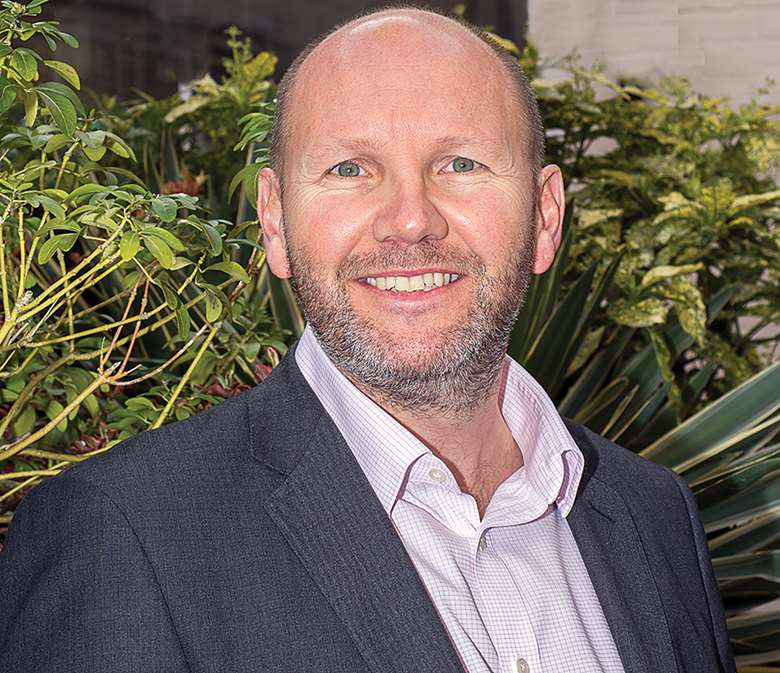Rethinking care relationships
Andy Elvin
Tuesday, October 30, 2018
New families of looked-after children may experience varying levels of support depending on the legal order the child is under. It is time to end these discrepancies to ensure all get the right support.

Children's social care and the family courts are responsible for creating tens of thousands of new families every year. These families take a variety of guises. They may be foster families, adoptive families, kinship families or residential families, but it is beholden on us to give all of these new families the best possible chance of being safe and stable.
Currently we are not doing well enough. Some families, depending on the legal order the child is under, get more support than others. Some we have to visit more often, not owing to need but owing to the rules and regulations of the system.
TACT, in partnership with Peterborough City Council and with support from the Department for Education's Innovation Fund, is embracing a new way of supporting all families. These are some of the key leadership lessons we have learned.
1. Forget different types of care order and treat all children in the system equally. One cohort of children comes through child protection procedures. The family they then grow up in depends on the particular circumstances of their life. Some will have relatives who step forward, some will be adopted, and the majority will become part of foster families. However, the depth of preparation and ongoing support these families receive can depend on the legal order more than the needs that they might have. This must end. Leaders of care services must recognise that all these families will face the same general issues and all should be able to access the same kinds of support in an effective and non-judgmental way.
2. Empower carers to shape and make decisions. Whoever the child's family are they should be respected by all professionals and must be central to all decisions made about the child. Adopters, relatives and foster carers know more about their children than social workers, independent reviewing officers, teachers and health professionals. All meetings and all decisions should have the family at their centre, be led by them and involve them fully.
3. Create a skills development culture among carers. We have historically put a lot of time, expertise and effort into recruiting, assessing and preparing foster and adoptive families before placing vulnerable children with them.
A fundamental part of this preparation is helping them understand it is not going to be an easy ride. They will be challenged and tested, sometimes quite profoundly. For that reason, help should be at hand and developing a positive and willing attitude towards ongoing training and asking for support when needed is a key part of adoption and fostering preparation.
We need to do the same with kinship families taking on special guardianship or other orders. They face the added challenge that their experience of social services is the intervention with their relative which will have been a bruising and difficult process for extended family members. We need to engage them with permanence services and help them understand that asking for help is not a sign of weakness or failure. On the contrary, we expect them to require support and help and must commit to providing this for all.
4. Ensure all decisions promote stability. The fundamental underpinning of a good childhood is stability. Whichever family type the child moves into, our overriding aim has to be that it lasts for their whole childhood and beyond.
Sometimes this is not possible and we have to explore other options but the overwhelming majority of families can provide this stability if they are properly supported, valued, trusted and listened to. Everything we do must be done with and through the family. No meeting must be held or decisions made without them. Advice, guidance, support and training must be available on tap when required.
A functional and supportive out-of-hours service is vital. Too many local authorities rely on their emergency duty team. This simply doesn't work as they are not set up to have a 45-minute reflective and supportive discussion about a situation the family are facing on a Sunday evening. In Peterborough, all social work staff from the permanence team are on an out-of-hours duty rota. Our families are there 24/7 - the least we can do is be there with them.
5. Stay in touch with care leavers for as long as they need. Legal orders and services' structures don't reflect the reality of family life. Any decent parent knows what their children are doing at 25, 35, 45 and so on. The state does not. Support is delineated to 18, 21 or 25 depending on circumstance. This needs to stop - we are all in this for life.
TACT is instating an "In Touch" project across our charity to contact and then stay in touch with as many of the children we have cared for over the past 25 years as we can. Through this we aim to celebrate their achievements, lend a helping hand where needed and also to offer them the opportunity to act as mentors to the children currently in our care and get involved as staff, panel members, trustees and volunteers. Permanence must mean permanence.
- Andy Elvin is chief executive of TACT




